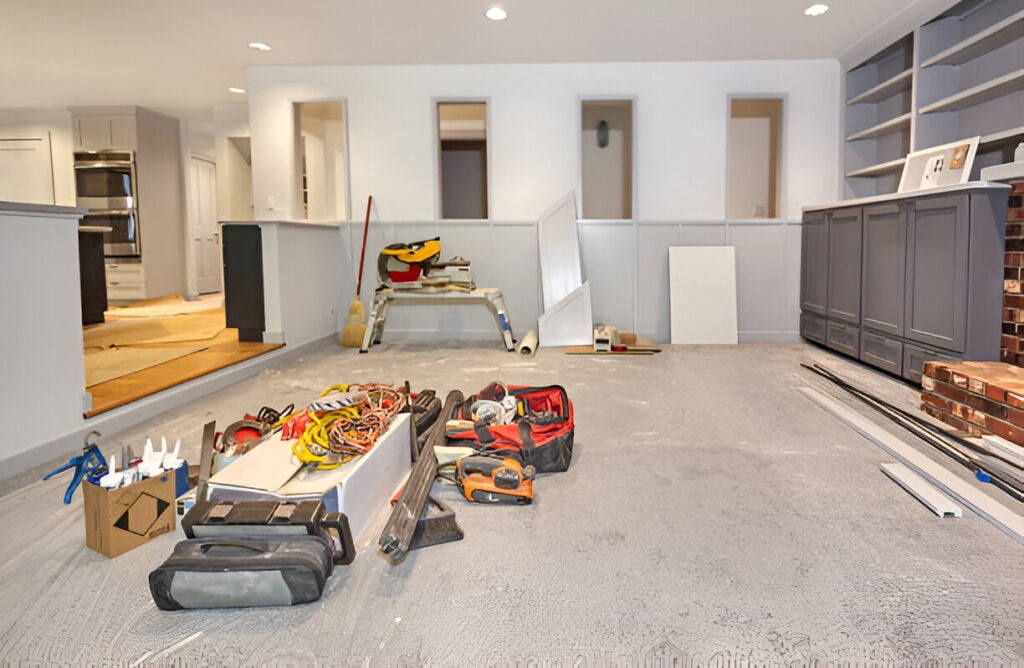Table of Contents
- Introduction to Basement Renovations
- Benefits of Renovating Your Basement
- Planning Your Basement Layout
- Essential Steps for a Successful Renovation
- Common Challenges and Solutions
- Cost-Effective Renovation Tips
- Final Thoughts on Transforming Your Basement
- Frequently Asked Questions
Transforming a basement into a functional living space enhances a home’s value and usability. Key considerations include assessing moisture levels, ensuring proper insulation, and meeting local building codes. Homeowners should plan the layout based on intended use—whether a guest room, office, or entertainment area. Lighting, ventilation, and egress points are crucial for safety and comfort. Budgeting realistically for materials, labor, and permits helps avoid surprises. Hiring professionals— such as an electrician, structural expert, or searching for a plumber near me— ensures compliance and quality. Finishing touches like flooring, paint, and furnishings complete the space, turning an underused area into a comfortable and practical home extension.
Introduction to Basement Renovations
Basements have often been relegated to musty storage areas or left unfinished, but recent trends in home improvement have brought this space into the spotlight for its broad potential. Transforming your basement into a livable, functional area can redefine how you utilize your home’s total space. Imagine having a personal gym, a home theater, or even a guest suite downstairs.
Services like Ayers Basement Systems have highlighted the advantages of professionally renovated basements, providing structural integrity and aesthetic beauty. As more homeowners realize the untapped potential beneath their feet, basements become desirable home extensions where families can gather, relax, and make memories.
Benefits of Renovating Your Basement
Renovating your basement expands your living space and boosts the overall value of your property. Many real estate experts agree that a finished basement can add significant value, providing a substantial return on investment. This transformed area can serve multiple functions, adding flex space for a growing family or providing rental income possibilities. Depending on the market and the standard of the restoration, these projects could yield a return on investment of between 50% and 75%, according to HouseLogic.
Living in a home with a finished basement also means never worrying about running out of space. Do you need an area for a home office? Or a secluded retreat for relaxation? A cellar can morph into any of these spaces, adapting seamlessly to your lifestyle needs and personal preferences.
Planning Your Basement Layout
Careful planning is essential for successful basement remodeling. This stage starts with thorough assessments and precise measurements, clearly defining your goal. Categorize it: whether you need a new entertainment hub, an extra bedroom, or a workspace, define each area’s purpose.
Consider the basement’s unique challenges, such as low ceilings or awkward support beams, and integrate them creatively into your design. Also, remember that permits and inspections are not just formalities but essential steps that validate safety and adherence to local codes. You may further enhance your layout by consulting an architect or interior designer to capitalize on space and efficiency while framing a welcoming aesthetic.
Essential Steps for a Successful Renovation
Although starting a basement restoration project can be intimidating, it becomes feasible when broken down into necessary steps. It begins with identifying issues like moisture, structural weaknesses, or outdated utilities. Addressing these fundamentals ensures a solid foundation for further renovations.
Hiring the right professionals is critical—contacting experienced contractors specializing in basements. They can provide valuable insight into what’s feasible and what may require adjustments. This Old House recommends getting multiple bids to compare services and prices, which allows for more informed decision-making and ensures you get the best value for your investment.
Common Challenges and Solutions
Due to specific environmental factors, basement renovations differ from other home improvement projects. Chief among these is moisture control. Employ effective waterproofing techniques and choose materials like mold-resistant drywall and rubber flooring that withstand damp conditions. Integrating a robust dehumidification system also helps maintain air quality and comfort levels.
Lighting can also pose a challenge in basements, often devoid of natural light. Combat this with diversified lighting strategies—install recessed lights for overall coverage and task lighting for specific areas to make the space feel airy and inviting. To increase brightness, paint the walls and ceilings a lighter shade.
Cost-Effective Renovation Tips
If budget constraints are part of your renovation planning, rest assured there are numerous strategies to keep costs down without compromising results. Choose versatile, durable, and cost-effective materials like engineered wood or vinyl for flooring, which mimic more expensive options without the hefty price tag.
Consider tackling some aspects of the renovation, such as painting or installing baseboards, which can substantially reduce labor costs. Repurposing furniture or using innovative décor tricks can also imbue the revamped space with personality, reflecting your style while economizing wisely.
Final Thoughts on Transforming Your Basement
Basement renovations represent more than just an end product—they’re a journey toward optimizing underutilized space in your home. As more people seek to create tailored living spaces that suit their unique lifestyles, basements become a versatile canvas for creativity and practicality.
Embrace the project with a flexible mindset, knowing that every step forward brings you closer to the basement of your dreams. Approach each layer of the renovation process as a building block toward a finished area that genuinely integrates with the rest of your home, lending value and joy for years to come.
When planning your basement renovation, it’s crucial to address potential moisture issues to prevent future damage. Consulting with professionals can ensure that your space remains dry and functional. For those in the area, Huntsville AL moisture control experts can provide tailored solutions to manage humidity and water intrusion effectively. By incorporating moisture barriers and proper ventilation, you can protect your investment and create a comfortable living environment. This proactive approach not only safeguards your renovation but also enhances the overall value and longevity of your home.
Frequently Asked Questions
What are the main advantages of basement renovations?
The chief benefits include increased property value, additional living area, and customization options, providing a flexible, versatile extension of your existing home.
How do I ensure my renovation stays within budget?
Cost-effective planning is essential. Meticulously outlining your priorities, opting for budget-friendly materials, and undertaking simple DIY projects can help manage costs without sacrificing quality.



